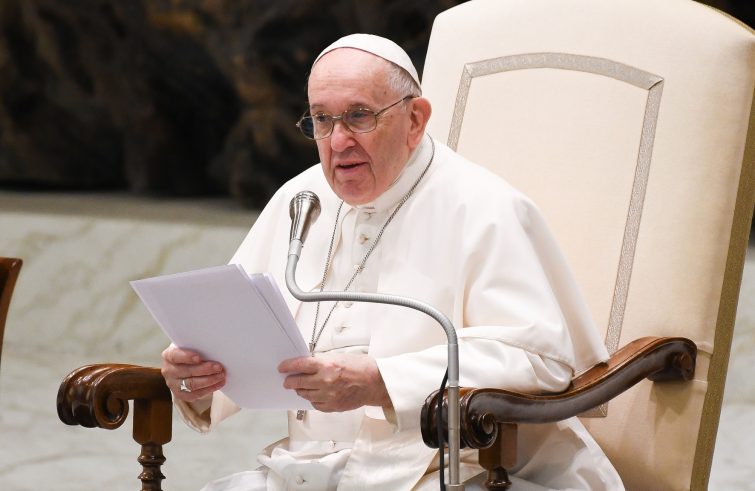
“A type of slavery of women exists even today”: “women do not have the same opportunities as men”, the Pope said commenting on the passage from the Epistle to the Galatians, devoted to equality, at Wednesday’s General Audience in Paul VI Hall. With regard to the Apostle Paul’s second set of equalities, between those who were free and those who were slaves, it “introduced a shocking perspective”, Francis remarked. “The distinction between slaves and free citizens was vital in ancient society. By law, free citizens enjoyed all rights, while the human dignity of slaves was not even recognized.” “This happens even today”, the Pope said in unscripted remarks:
“There are many people in the world, many, millions, who do not have the right to eat, who do not have the right to education, who do not have the right to work. They are the new slaves. They are the ones who live on the margins, who are exploited by everyone. Slavery exists even today –Human dignity is denied to these people. They are slaves.”
Finally, “equality in Christ overcomes the social differences between the two sexes, establishing an equality between man and woman which was revolutionary at the time and which needs to be reaffirmed even today.” “This needs to be reaffirmed”, Francis remarked:
“How many times we hear expressions that denigrate women! But men and women have the same dignity. And it has happened in history, even today, a type of slavery of women: women do not have the same opportunities as men.”
“We have to read what Paul says: we are equal in Christ Jesus.”
“The differences and contrasts that separation creates should not exist among believers in Christ”, Francis reminded the faithful, noting that , as reads the Epistle of James, “We create these differences, many times unconsciously so.” “We are equal!”, the Pope remarked. “Rather, our vocation is that of making concrete and evident the call to unity of the entire human race. Everything that exacerbates the differences between people, often causing discrimination – all of this, before God, no longer has any basis, thanks to the salvation effected in Christ. What is important is that faith that operates according to the path of unity indicated by the Holy Spirit. And our responsibility is that of journeying decisively on along this path of equality, but an equality that is sustained, that was created by the redemption of Jesus.” “Paul confirms the profound unity that exists between all the baptized, in whatever condition they are bound to, whether men or women – equal because every one of them is a new creature in Christ”, Francis said. “Equal because we are children of God; and children of God because Christ redeemed us and we attained this dignity through baptism. It is decisive even for all of us today to rediscover the beauty of being children of God, to be brothers and sisters among ourselves, because we have been united in Christ, who redeemed us.”
In the opening and closing part of the audience, the Pope reiterated his request to those who yet don’t know it, to inquire about the date of their baptism.
“If I were to ask you today, ‘which of you knows the exact date of your baptism?’ I do not think there would be too many hands raised….”,
the Pope said in his opening remarks. “We Christians often take for granted this reality of being God’s children”, Francis noted, pointing out that “it is good to remember with gratitude the moment in which we became such, the moment of our baptism”, for “all men and women are children of God, all of them, regardless of the religion we embrace. But in Christ, this is what makes the difference for Christians, and this happens only by participating in Christ’s redemption, and in us in the sacrament of baptism.”











